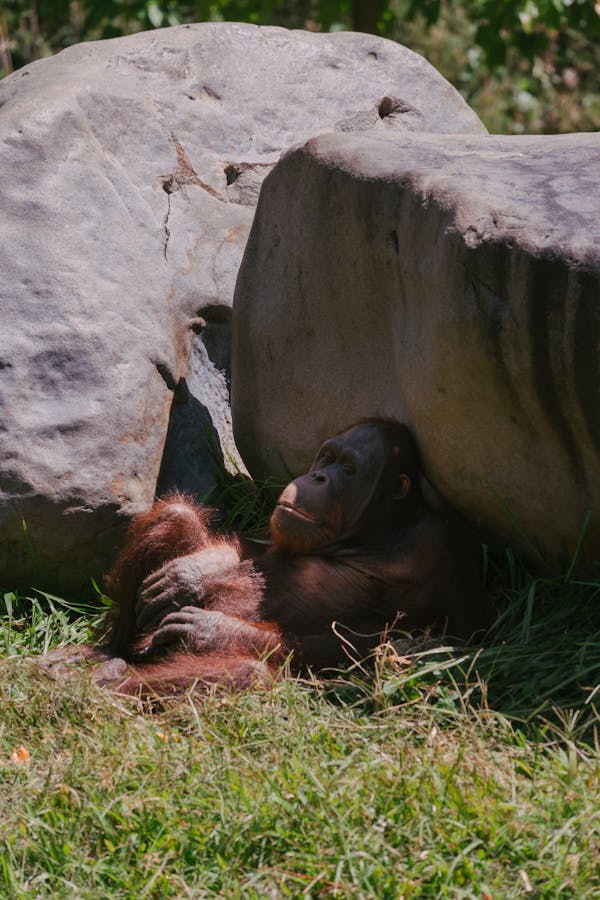First time discovering orangutans using medicinal leaves to heal wounds
May 03, 2024
Berlin [Germany], May 3: Primates such as orangutans have long been recognized for their high intelligence, knowing how to use tools to crack seeds and catch insects for food. However, new research shows that this animal has another skill: using medicinal plants to treat wounds.
According to The Guardian on May 2, researchers reported seeing a male Sumatran orangutan treating an open wound on his face with chewed resin and leaves of a medicinal plant known to have anti-inflammatory properties. and pain relief.
Previously, there was a case of Bornean orangutans chewing the leaves of a plant to treat muscle pain and rubbing them on their limbs. Or there was the time chimpanzees chewed plants to treat worm infections and used insects to treat wounds. However, the new discovery is the first time a wild animal has treated an open wound with a substance with medicinal properties.
"Chimps use insects and unfortunately it is unknown whether those insects actually promote healing . Whereas in our case, orangutans used plants known to have medical properties," said Dr. Caroline Schuppli, research author at the Max Planck Institute for animal behavior in Germany.
Ms. Schuppli's team says the new discovery provides insight into the origins of human wound treatment, which was first mentioned in a medical manuscript in 2200 BC. "It certainly shows that the basic cognitive abilities that you need to produce such behavior may well have existed in the time of our most recent common ancestors," Ms. Schuppli said.
The fact that orangutans treat wounds with medicinal leaves was accidentally discovered by Ms. Schuppli and her colleagues during a research trip in a protected rain forest area in Indonesia.
The group said a male Sumatran orangutan named Rakus had injuries to his face, possibly from a fight with another male. Three days later, Rakus was seen eating the stems and leaves of the vine Fibraurea tinctoria. "13 minutes after eating this vine, it began to chew the leaves but did not swallow, but used its fingers to collect the juice from its mouth to wipe on the wound on its face," researchers wrote in an article in the journal. Scientific Reports .
The male orangutan repeated the action and then covered the wound with the entire chewed leaf. Five days later, the wound healed and after a few weeks it recovered, leaving only a small scar.
The above mentioned plant is said to contain antibacterial, anti-inflammatory, anti-fungal, antioxidant, analgesic, anti-cancer properties... and has been used in traditional medicine to treat dysentery, diabetes and malaria. .
It is unclear whether Rakus came up with a way to heal himself or learned from others, although this has never been seen in other orangutans.
Source: Thanh Nien Newspaper








